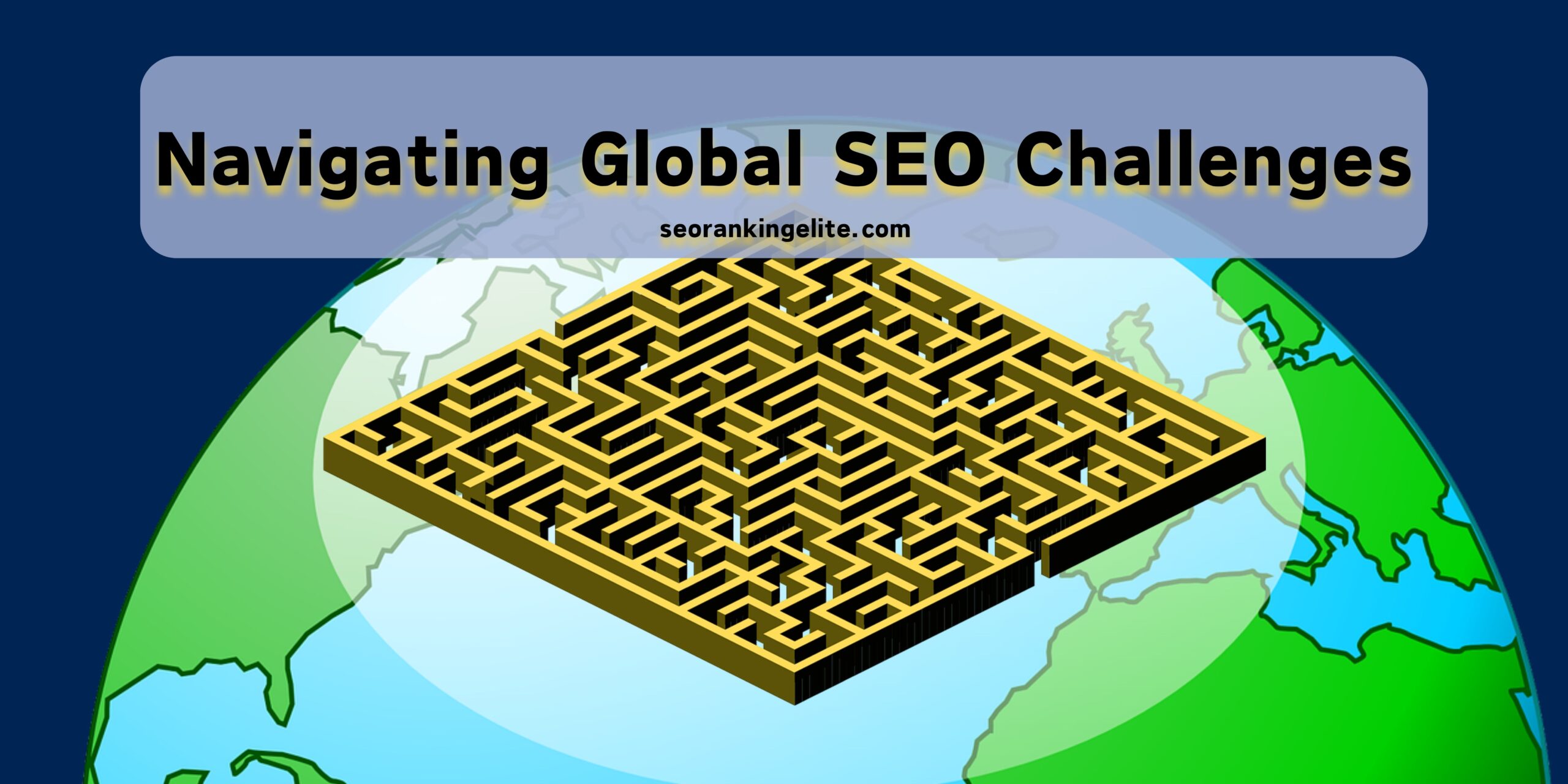Navigating Challenges: Global SEO Strategies for Diverse Markets
Introduction
In the dynamic online landscape, businesses strive for search engine prominence. Navigating diverse global markets in the non-uniform digital realm poses unique challenges for robust global SEO strategies. This article explores the intricacies of addressing these global SEO challenges while expanding digital presence worldwide.
Global SEO challenges are as diverse as the markets they encompass. To tackle them effectively, it’s crucial to identify and understand the distinct challenges that arise when optimizing for a global audience.
1. Language Barriers and Cultural Nuances
The Challenge: You’ve nailed your SEO game in English, but how do you adapt when targeting non-English speaking markets?
The Solution: Incorporate multilingual SEO strategies! Use local keywords, understand cultural nuances, and employ native speakers for content creation.
2. Local Search Engine Preferences
The Challenge: Google might be your go-to search engine, but in different regions, there are local search engines that dominate the scene.
The Solution: Research and optimize for the preferred search engines in each target market. Baidu in China, Yandex in Russia – tailor your strategy accordingly.
3. Global Website Structure and Technical SEO
The Challenge: Your website structure might be SEO-friendly in one region but not in another.
The Solution: Customize your website structure based on regional preferences. Optimize for speed, mobile-friendliness, and local hosting to enhance user experience.
4. Regulatory Hurdles
The Challenge: Navigating through the complex web of international regulations and compliance issues.
The Solution: Stay informed about data protection laws, privacy regulations, and other legal requirements. Adapt your SEO strategy to comply with diverse global standards.
Strategies to Overcome Global SEO Challenges
Now that we’ve identified the challenges, let’s delve into actionable strategies to overcome them and conquer the global SEO game!
1. Comprehensive Keyword Research
Conduct thorough keyword research for each target market. Leverage tools like SEMrush or Ahrefs to understand the local search landscape. Don’t just translate keywords; adapt them to the local language and culture.
2. Localization of Content
Create content that resonates with your target audience. Localization goes beyond mere translation; it involves understanding cultural nuances, preferences, and idioms. Hire native speakers to ensure your content strikes the right chord.
3. Regional Link Building
Build a robust backlink profile by establishing connections with local websites and influencers. This not only boosts your credibility in the eyes of search engines but also enhances your visibility within the local community.
4. Mobile Optimization
In many emerging markets, mobile devices are the primary means of internet access. Ensure your website is mobile-friendly and optimized for different screen sizes. Google’s mobile-first indexing also emphasizes the importance of mobile optimization.
5. Geotargeting and Local Hosting
Utilize geotargeting to direct your content to specific regions. Additionally, opt for local hosting to improve website speed and performance, especially in regions with slower internet connectivity.
6. Multilingual SEO
Implementing a multilingual SEO strategy involves more than translation. It requires understanding the intricacies of each language, considering regional dialects, and using keywords that resonate with the local audience.
FAQs: Addressing Common Concerns
Q1: Is it necessary to optimize for local search engines in addition to Google?
Absolutely! Many regions have their preferred search engines, and optimizing for them is crucial for success in those markets.
Q2: How can I navigate language barriers in content creation?
Hire native speakers or professional translators who understand the cultural nuances and can create content that resonates with the local audience.
Q3: What’s the significance of mobile optimization in global SEO?
Mobile optimization is vital, especially in markets where mobile devices are the primary means of internet access. It ensures a seamless user experience and positively impacts search rankings.
Conclusion
In the fast-paced world of global SEO, dealing with challenges isn’t just about overcoming obstacles; it’s about adapting and thriving in different markets. The strategies outlined here, like doing thorough keyword research and effective localization, act as a guide for businesses aiming to succeed in the worldwide digital landscape.
Navigating through the global SEO challenges is not a one-time task but an ongoing process. Stay informed about market trends, adapt your strategies accordingly, and watch your online presence soar across borders. Global SEO challenges may be diverse, but with the right approach, they become stepping stones to international success!
Need SEO help? Contact SEO Ranking Elite, your premier SEO service agency. Partnered with the Madex Group and Madex Academy, we deliver effective strategies for SEO success, targeting businesses in Malaysia and Singapore.





